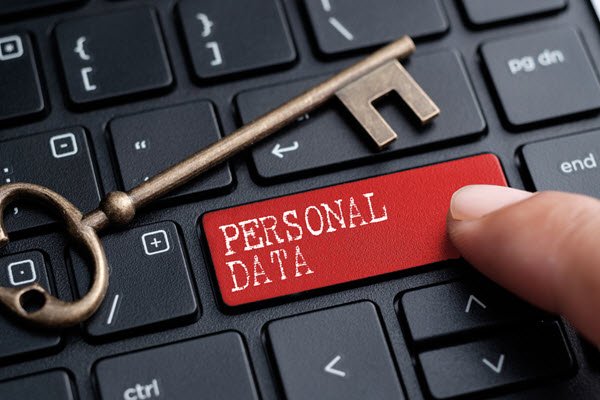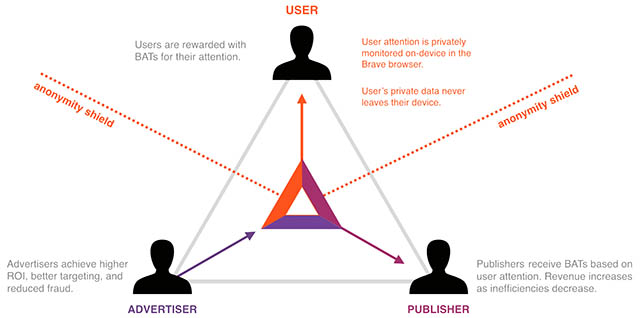The current state of digital advertising is interesting, to say the least. It’s dominated by a very small number of extremely powerful and influential companies, who harvest our personal data for an enormous reward.
To give you an idea of the scope of the issue — Google and Facebook alone account for 70% of online ad revenue. That’s two companies, together responsible for a significant majority of all the advertising revenue on the internet.
This duopoly has come into existence largely thanks to our personal data. Google and Facebook both have access to a minefield of information about individual users, from your political leanings to your favorite sportswear brands.
This personal data is taken without any consultation with users and deployed in advertising without compensating the people that provided it in any way.
People want to regain control of their data, exercise more choice over who gets to use it, and get rewarded fairly when businesses make billions of dollars from it.
But at the same time, we don’t want to stop using services like Google Chrome which have a ton of great benefits.
So, what’s the answer? First, let’s get into why data is so important and how it’s being misused.

The Data Issue
Facebook and Google have access to our data, but that doesn’t quite explain how they’re able to make so much money from it. On its own, personal data is fairly useless.
The money comes from selling this data to advertisers, who can use it to construct accurate profiles of users and target ads to the right people. Facebook knows you love pancakes because of all those pancake-themed pages you like. Now, pancake companies can buy that data and target ads directly at you.
In theory, this benefits everyone because advertisers don’t waste their ads on uninterested users, and you get to see ads for things you like instead of irrelevant nonsense.
Unfortunately, data sharing is complex and there are no direct links between advertisers, content publishers, and users. This means a lot of the time we end up with poorly targeted ads for things we couldn’t care less about. Annoying for us, and wasteful for advertisers.
The solution is to build a platform where advertisers, publishers, and users can communicate better and share data in a more direct way that benefits everyone — not just monolithic content platforms.
The good news is that several companies are working on this right now. The bad news is, many of them are flawed.

The Current Solution
One company aiming to reform the world of online advertising is BAT. It’s a platform where advertisers can interact with content publishers and access their followers (people like you and me) with more tailored, accurate ads.
In return, publishers are rewarded with tokens. Users gain control over their data and see less spammy, irrelevant ads.
There’s one issue — it all happens in BAT’s very own browser.
For most of us, that’s not ideal. Google might have its faults, but Google Chrome is a fantastic piece of software with solid security and a ton of neat features. More than anything, it’s what we’re used to. For these reasons and more, Chrome is the browser of choice for 57.46% of the market. These people aren’t going anywhere.
The same applies to browsers like Safari — they’ve been painstakingly designed to work perfectly for us. The bottom line is that we don’t want to switch.
So how do we regain control of our data and have a more pleasant relationship with ads, without giving up our favorite browsers?

Meet Kind Ads
Kind Ads is a blockchain-based network that works in a similar way to BAT. It gives users more control of their personal data, allowing them to choose who can access it and be rewarded in tokens when advertisers use it.
They only see the kind of ads they want to see, making the process of browsing the internet much more enjoyable. In turn, advertisers get a closer dialogue with prospects and content publishers, allowing them to target their ads more effectively.
Best of all, you don’t need to install a new browser — Kind Ads works with existing software.
Kind Ads also offers something else that its competitors overlook. It aims to make advertising more pleasant by encouraging the use of methods like chatbots and push notifications, which are proven to be both more effective and better received by users.
The underlying technology is a decentralized Ad Network, that’ll work with your existing browsers. In other words, this means more revenues to publishers due to middleman getting taking out of the picture (and fewer fees for advertisers) and most importantly, less intrusive and annoying ads to people.
The goal is to change the way advertising works and shift the power from monolithic tech companies to smaller content publishers and users — with benefits for everyone involved.
Well, everyone except the tech giants. But they can probably afford it.
What are your thoughts on Google, Facebook, and other platforms monetizing your personal data for their own profit without your permission?
Images courtesy of Shutterstock, BAT, Kind Ads











